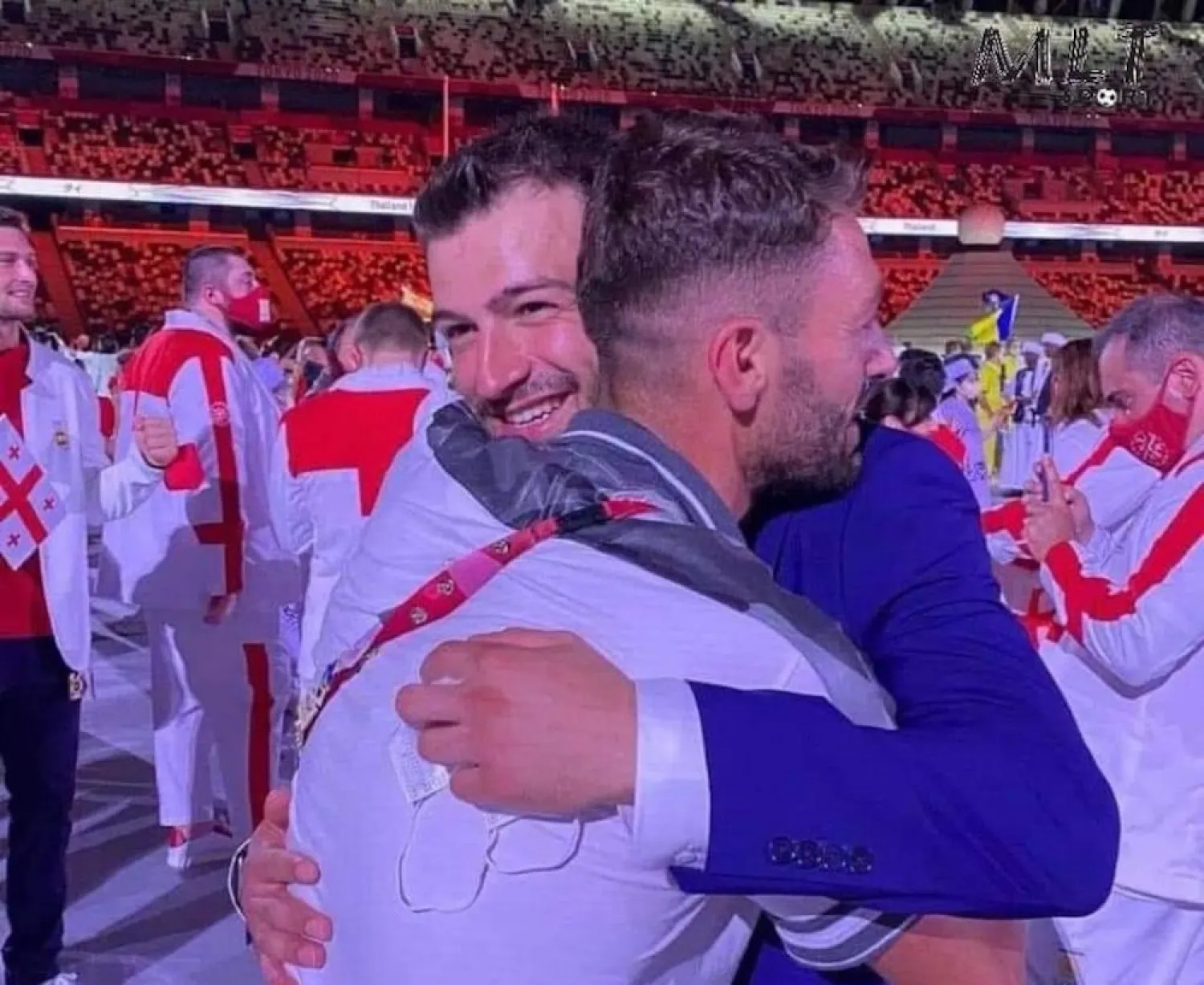A photo of two Syrian brothers, competing for different teams at the Olympics, hugging each other in Tokyo went viral on social media earlier this week.
Mohamad Maso is representing war-torn Syria in the triathlon event, while his younger brother Alaa will swim for the Olympic refugee team, reflecting the massive divides that grip their country.
Some media and internet users wrongly believed that the photo of the brothers’ embrace showed them meeting after years of separation due to the conflict.
But the pair, originally from Aleppo, live in Germany after leaving Syria, where their parents still live, in 2015 to undertake the perilous journey to Europe together. They traveled on “death boats” from Turkey to Greece, then traversed various European countries before reaching safety in Germany where they pursued their dreams at work, education and competitive sports.
The recent erroneous media speculation over how long they had seen each other and their political affiliations forced them to quit social media. Asharq Al-Awsat contacted Mohamd Maso through WhatsApp for a brief interview.
How, when and why did you leave Syria?
My brother and I left Aleppo in late 2015 because we no longer felt safe. At the time, I was a student in Latakia. We lived in constant fear whenever we traveled between Aleppo and Latakia. The situation in Syria was heading from bad to worse and we did not want to stay around to watch the conflict unravel further, so we decided to leave the country.
We headed to [the Lebanese capital] Beirut and took a flight to Turkey. There, we paid a Turkish smuggler some 110 dollars each and boarded a rubber boat in Izmir to a Greek island. The smuggler told us that the boat could carry 16 people only, but we counted some 50 people on board, including small terrified children.
I did not wear a lifejacket. I gave it others. My brother and I are professional swimmers. We told the children: “Don’t be afraid. We are trained in rescuing children and we can save you.” The dangerous journey lasted three hours. The first thing we did when we reached the Greek shores was tear up the boat so they wouldn’t force us to turn back.
How did you leave Greece to the Netherlands and later Germany?
After arriving in Greece, we headed to the city center. We boarded a ship to Athens and then started walking north towards Europe. We walked for 12 days. Alaa was still 12. At one point I lost him for a period of three days because he ended up joining another group of refugees.
We eventually reached the German border and had our fingerprints registered with German police, who told us that taking the prints “had nothing to do with refugee status”. After a brief delay we made it to the Netherlands. Soon after arriving at the refugee camp, I donned my sports gear and began to train. I asked around if there was a pool or training center. I needed to make up for the period between 2013 and 2015 when I could not pursue sports.
One day, Dutch authorities informed us that since our prints were registered in Germany we had to go back. And so, we had to begin again from zero.
There, I contacted the Hanover club and was accepted to train and eventually compete. After spending eight months in Dutch camps and seven in Germany, we were finally free to lead a normal life. In 2017, I competed in the European championship in the Netherlands. I had submitted a request to the sports federation to compete in the name of Syria because I could not compete under my own name.
What about the leadup to the Tokyo Olympics?
I do not like to get involved in politics. All I care about is sports and showing a beautiful image of my people and encourage refugees to volunteer and take part in sports. My brother and I have competed in several sports competitions around the world.
After competing at a tournament in the Czech Republic in 2018, my friends asked if I had thought about competing in the Tokyo Olympics. And so began my journey. I knew that the sports federation would be unable to provide the necessary support, so I relied on sponsors and backing from a Dutch family. I participated in several Asian, African and Arab tournaments. Eventually I earned the rank 135 out of 1,000, which qualified me to the Olympics. My brother is a top swimmer and he had registered in the refugee Olympics team in 2019 and trained at the Hanover club.
What’s the story behind that emotional photo of you two at the Olympics?
I had been training in the Netherlands and my brother in Germany ahead of the Olympics. We hadn’t seen each other in eight months because of the coronavirus pandemic. At the opening ceremony of the Olympics, Alaa had appeared with the refugee team and I for Syria. I told him: “This is a historic moment, let’s take a picture of it. Let us embrace and give off a good image at the Games.” And that’s what we did.
It has been our childhood dream to take part in the Olympics. We have achieved it in spite of all of the obstacles and challenges. We are not involved in politics. If I were interested in war, I would have remained in Syria. I do not brandish the image of any politician and do not discuss politics. I represent myself, my country and people. Our people are ambitious and not people of war.










